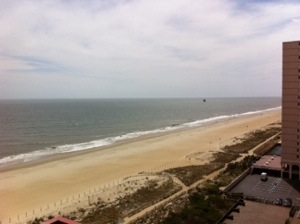Written by Sharing Sustainable Solutions
“Natural farming is not simply a way of growing crops; it is the cultivation and perfection of human beings.” – Masanobu Fukuoka
The One Straw Revolution: An Introduction to Natural Farming, by Masanobu Fukuoka, is available once again. First published in English in 1978, this classic treatise on non-conventional, productive farming methods has dropped out of print and copies have been difficult to find. The recent republication is welcome news not just for farmers and gardeners, but for anyone interested in a healthier life through natural, commonsense sustainable practices.
One of the most influential agrarian thinkers of the 20th century, Masanobu Fukuoka trained as a scientist, and eventually came to reject both modern agribusiness and centuries of agricultural practice in Japan, deciding instead that the best forms of cultivation mirror nature’s own laws. Over the next three decades he perfected his so-called “do-nothing” technique: commonsense, sustainable practices that all but eliminate the use of pesticides, fertilizer, tillage, and perhaps most significantly, wasteful effort.
Fundamental to Fukuoka’s method is the development and maintenance of healthy soil, which once established, should never be tilled. This creates a soil environment where micro-organisms naturally thrive, breaking down and transferring nutrients while improving aeration and drainage. Ideal soil surface conditions are achieved through the liberal use of mulch, and throughout the book Fukuoka emphasizes the importance of spreading straw, growing clover, producing compost and returning organic matter back to the Earth. With no plowing, weeding, fertilizers, pruning or chemicals, his minimalist approach requires less labor time than conventional practices, while yielding harvests comparable to more resource-intensive methods.
Sometimes referred to as “Zen and the Art of Farming” or the “Little Green Book”, The One Straw Revolution is a manifesto about farming, eating, and the limits of human knowledge which presents a radical challenge to the global systems we rely on for our food. At the same time, it is a spiritual memoir of a man whose innovative system of cultivating the earth reflects a deep faith in the wholeness and balance of the natural world. Throughout his observations and narratives on farming, Fukuoka devotes many pages to expand on philosophy, history, nutrition, intentional communities, and sustainability.
“Everything I know about boat building I learned from that book!”
Fukuoka’s do-nothing approach to farming is not only revolutionary in terms of growing food, but it is also applicable to other aspects of living. In the early 1980’s, as One Straw was becoming popular in the West, my wife and I had special visitors to our homestead, Alan and Sherrie Farrell, who were local elders in the community and renowned boat builders. I was an aspiring young boat builder and eager for any advice from the visiting master. As they toured our garden, my wife mentioned the book, One Straw Revolution, and Alan picked up and looked at me. “Everything I know about boat building I learned from that book!”
Eager to learn the master’s secrets, I pored through the book to find not a word about boats. And then the messages started to sink in. “Find the simple solution, it’s usually close at hand”, “You don’t need lots of tools and equipment, they only get in the way”, “Trust your common sense.” And so I learned when there’s no clamp for the job, grab a piece of rope and a wedge; a simple stick is more accurate than a tape measure for many boat measurements; having fewer tools keeps the mind flexible and creative.
The One Straw Revolution is not a quick read, and it has its tedious, dry sections. But in it you’ll find a message of vision and of hope. It shows the way to a brighter future for humanity and how we can benefit when we work with nature. Today more than ever, as people search for sustainable solutions to our threatened environment and unstable economy, the holistic messages within ‘One Straw’ have added relevance.
So whether you’re a backyard gardener, independent farmer, or simply looking for ideas and values to help live a healthier life, you will find something here—you may even be moved to start a revolution of your own.
As Fukuoka wrote, “Natural farming is not simply a way of growing crops; it is the cultivation and perfection of human beings.”
The newly published edition of One Straw Revolution is available at Amazon.
Originally posted @ Sharing Sustainable Solutions








